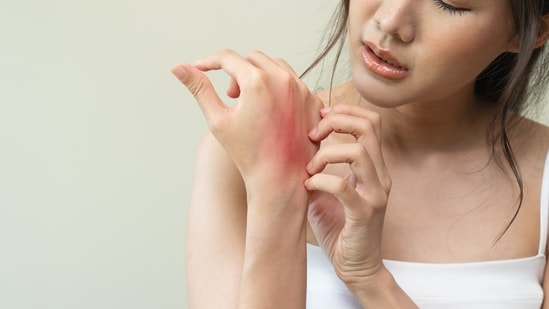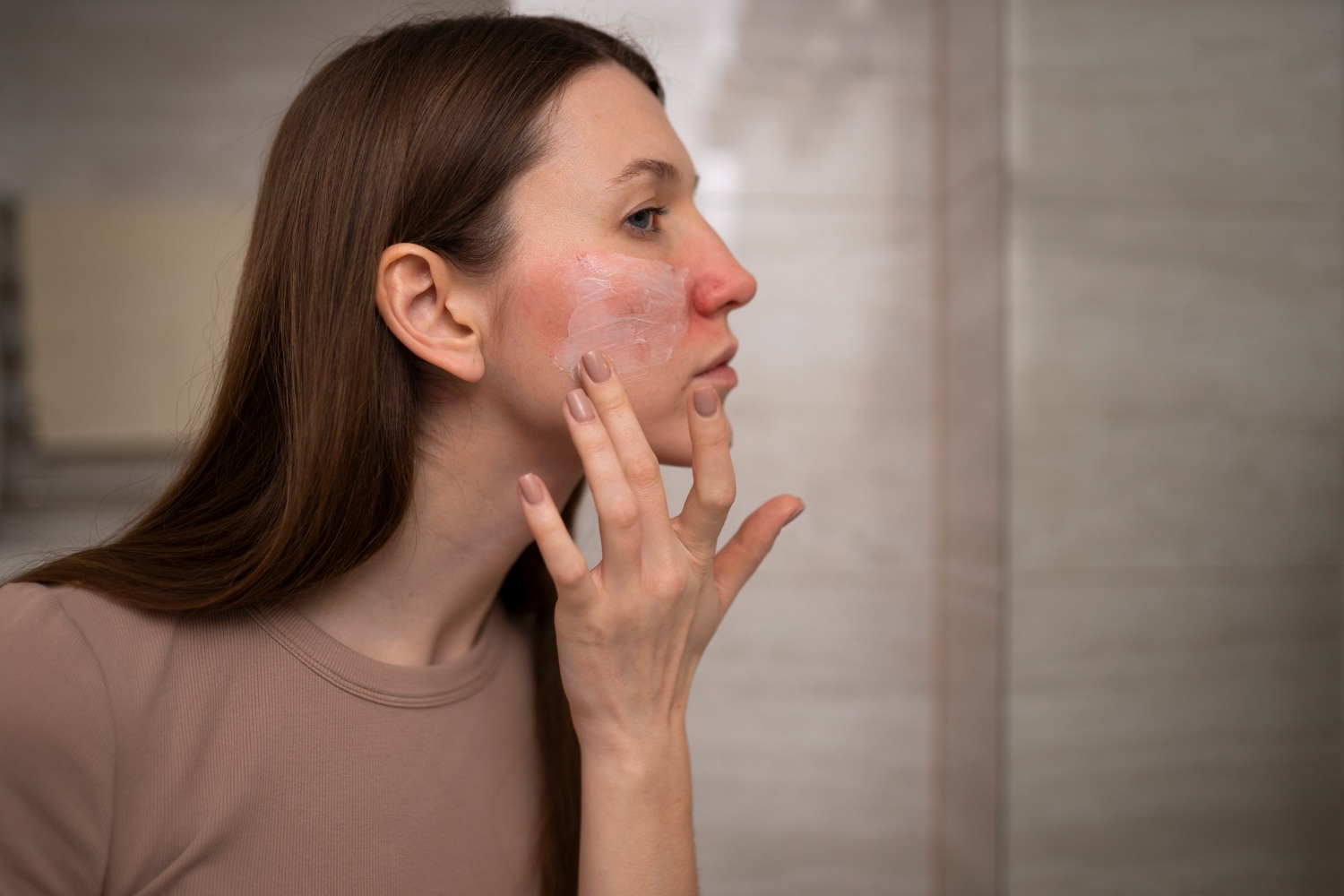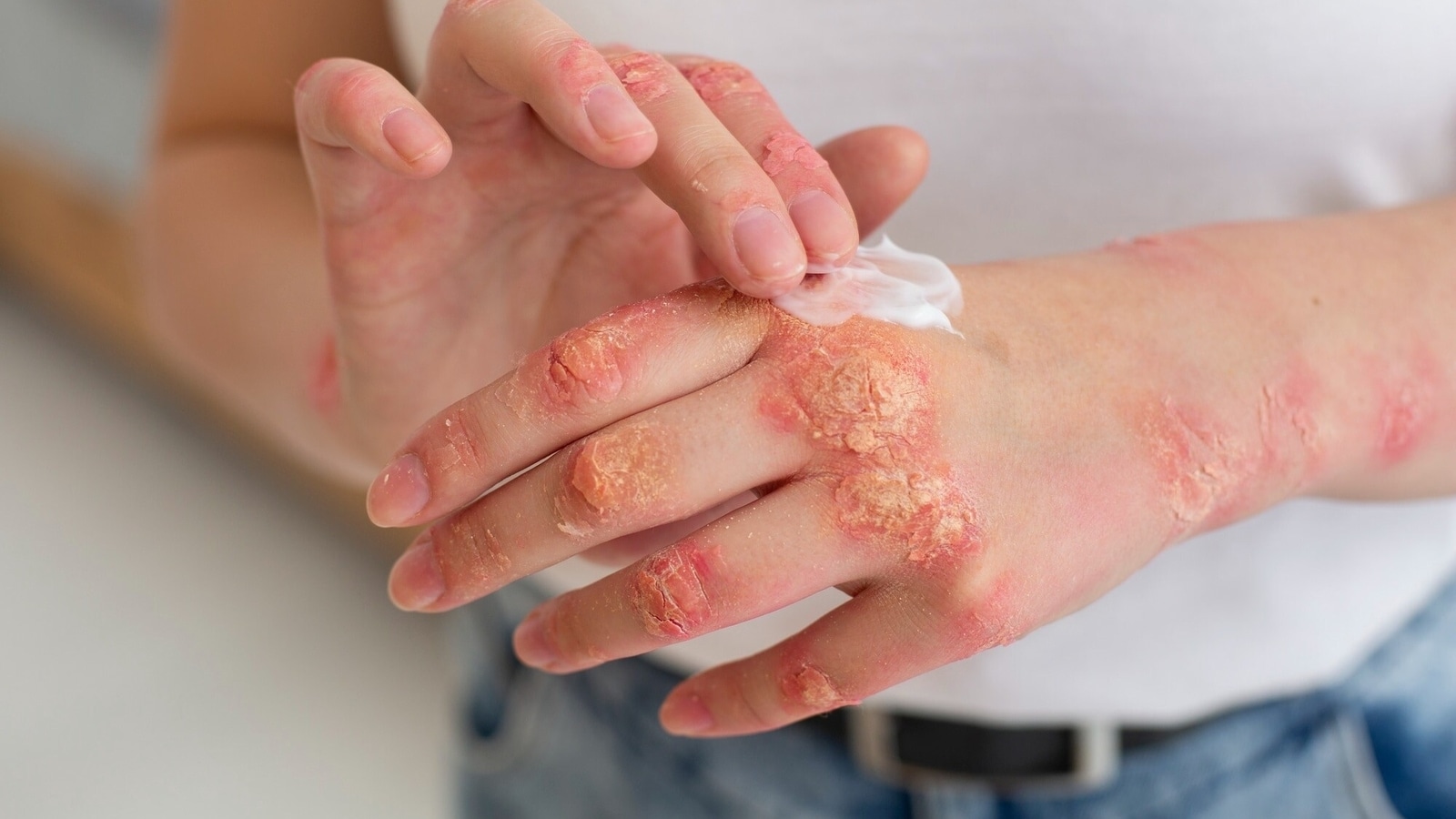World Eczema Day 2025: September 14 is designated for spreading awareness about a chronic skin condition called Atopic Eczema. As per the European Federation of Allergy and Airways Diseases Patients’ Associations, this year’s theme is “Our Skin, Our Journey.” This year’s awareness is aimed at spreading awareness from the perspective of the patients.
ALSO READ: Sodium intake and eczema risk: Eating too much salt could raise chances of skin inflammation, says study
On World Eczema Day, let’s take a closer look at the condition, what it is, what the symptoms are and who is at risk so that timely medical attention can be sought. To address all these essentials on the observance day, Dr Akanksha Sanghvi, dermatologist and founder of Oprava Aesthetics, shared with HT Lifestyle a detailed breakdown on each factor, along with tips for managing the condition.
But first, let’s begin with the basics and understand what this condition is. According to the dermatologist, eczema affects 2.6 per cent of the world’s population and can affect people of all age groups.
Further, she described, “Eczema is a common skin condition where the skin becomes inflamed, dry, itchy, and sometimes red or scaly.”
But Eczema is a chronic condition, which means people commonly have it lifelong, but Dr Sanghvi reassured that, “with the right skincare routine, trigger management, and medical treatment when needed, most people can keep their eczema well under control and live comfortably.”
Who is at risk of eczema?

While Eczema can affect anyone, there are some risk factors which make some more vulnerable. Dr Sanghvi revealed, “Eczema does not have a single cause. It develops from a mix of genetic, environmental, and immune-related factors.” In other words, people need to count multiple possible triggers and underlying causes.
So, how do you know you may be potentially at risk of eczema? The causes are more common yet widely extensive, from as simple as having a dry skin type to parents who have asthma.
Here are 7 major risk factors, as revealed by Dr Sanghvi, that you cannot afford to ignore:
1. Family history
- Prior ailments: If parents or siblings have eczema, asthma, or hay fever, the chances of developing eczema are significantly higher. This is because the tendency for sensitive or reactive skin often runs in families.
- Gene responsible: One of the strongest discoveries in eczema research is the role of the filaggrin gene (FLG). Filaggrin is a protein that helps build and maintain the skin barrier, the outermost protective layer of the skin, that locks in moisture and keeps irritants, allergens, and microbes out. Around 20-30% of the individuals affected may have mutations in the FLG gene.
2. Weakened skin barrier
- Poor skin barrier: Many people with eczema have a defect in the skin’s protective barrier, often linked to changes in a protein called filaggrin.Skin lipids are essential hydrophobic molecules, like ceramides, cholesterol, and free fatty acids, that form a crucial protective barrier in the skin’s outermost layer.
- Imbalance in lipids causes dry skin: Individuals with eczema tend to have an imbalance of these lipids in the skin, ceramide levels, in particular, are lower, which weakens the skin barrier. As a result, the skin loses water easily, becoming dry, cracked, and itchy. At the same time, irritants and bacteria can penetrate more easily, triggering inflammation and flare-ups.
3. Allergies and atopy
- Overactive immune system: Eczema is part of the ‘atopic triad’: eczema, asthma, and allergic rhinitis. People prone to one are more likely to develop another due to an overactive immune system.
- Atopic March: These conditions can develop simultaneously or in succession, a progression often called the “Atopic March”.Everyday allergens like dust, pollen, or certain foods can act as triggers.
4. Climate and environment
- Dry, cold air: Dry, cold air or sudden weather changes can strip the skin of moisture, making it itchy and cracked.
- Low humidity: Wind, low humidity, and even seasonal pollen can all contribute to flare-ups.
- Scorching heat: Heat and sweating may worsen irritation.
- Urban pollution: Urban pollution is also being increasingly recognised as a contributing factor. Sudden shifts, like moving from an air-conditioned room into the heat, may also stress the skin barrier.
4. Irritants and chemicals
- Harsh soaps: Harsh soaps, detergents, fragrances, and even frequent hand washing can break down the skin barrier.
- Frequent exposure to chemicals and handwashing: Occupations that involve constant contact with water, cleaning products, or chemicals carry a higher risk. Healthcare workers, hairdressers, cleaners, food handlers, and construction workers are particularly at risk of hand eczema because repeated hand washing, glove use, or exposure to irritants weakens the skin barrier.
5. Stress
- Skin-brain axis: Stress is a well-known trigger for eczema, and its through the “skin–brain axis.” When we are stressed, the body releases hormones and inflammatory signals that not only affect the mind but also disrupt the skin’s barrier and immune balance.
- Skin becomes more reactive: This makes the skin more reactive, itchy, and prone to flare-ups. The itch itself can cause further stress, creating a vicious cycle.
6. Age
- Common in childhood: Eczema is very common in infants and children, often improving with age.
- May begin in adulthood: In some people, it persists or even begins in adulthood.
11 symptoms of eczema

Now that you are well adept with all the common causes of eczema, identifying the symptoms is equally important to identify. Since one sign may overlap with other conditions, it’s important to look at multiple symptoms together.
Dr Sanghvi listed 11 symptoms that may indicate eczema:
- Persistent itching, often worse at night
- Dry skin
- Rashes
- Redness or inflammation
- Cracks in the skin, which may be painful
- Rough, scaly skin
- Tiny bumps
- Tiny fluid-filled blisters
- Thickened or leathery skin (from long-term scratching)
- Darkening or lightening of skin patches after healing
- Flare-ups that come and go
Note to readers: This article is for informational purposes only and not a substitute for professional medical advice. Always seek the advice of your doctor with any questions about a medical condition.
